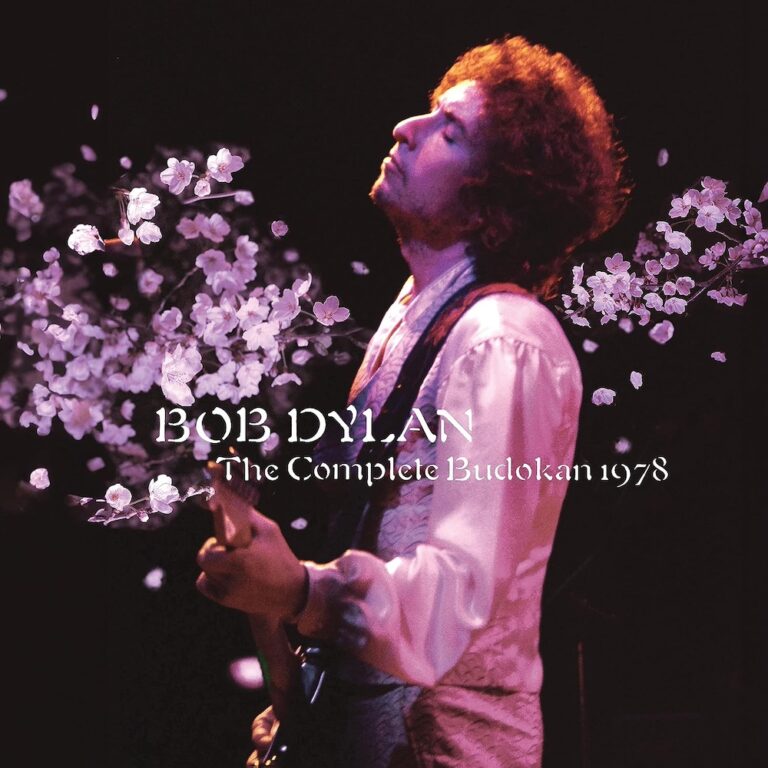When it first appeared in 1979, Bob Dylan’s Live at Budokan garnered mixed reviews. It did go gold and receive some praise, particularly in Europe, but many listeners derided its radical rearrangements of classic material as well as its use of backup singers and brassy, big-band instrumentation. Dylan may have been in Japan, but it seemed to a lot of people as if he’d gone to Las Vegas.
Of course, when he gave these performances, he already had a history of reinventing his material in concert – just listen to his renditions of songs like “Lay Lady Lay” and “Shelter from the Storm” on 1976’s Hard Rain, for example. So, nobody should have been shocked by his Budokan renditions.
That said, these performances – culled from Dylan’s first concert series in Japan – are a million miles from the songs’ original studio versions. His group occasionally sounds like the 1970s Saturday Night Live house band, and the beginning of “One of Us Must Know (Sooner or Later)” could be mistaken for something out of Fleetwood Mac. “All Along the Watchtower,” meanwhile, features prominent flute while saxophone plays a major role in many other tracks.
A new, limited-edition box set called The Complete Budokan 1978, which expands dramatically on the original release, gives us a fresh opportunity to consider what to make of such renditions. While the 1979 album offers 22 tracks, the box serves up 56 – two complete shows from February 28 and March 1, 1978 – including 36 previously unreleased performances. Everything has been remixed and remastered for this handsomely packaged anthology, which includes a 40-page, LP-sized booklet with previously unseen photos and new liner notes, as well as two large posters, replicas of the tour program and tickets, and other memorabilia.
Dylan’s desire to shake things up does not extend to the setlists: most songs appear in both concerts in the same order and with the same arrangements, with the two versions of most of them clocking in within only about 10 seconds of each other. Still, there are a few differences, and there are a dozen songs that the 1979 album didn’t include: “I Threw It All Away,” “Girl from the North Country,” “A Hard Rain’s A-Gonna Fall,” “To Ramona,” “One of Us Must Know (Sooner or Later),” “You’re a Big Girl Now,” “Tomorrow Is a Long Time,” One More Cup of Coffee (Valley Below),” “I Don’t Believe You (She Acts Like We Never Have Met),” and “The Man in Me,” plus covers of Tampa Red’s “Love Her with a Feeling” and Roland Janes’s “Repossession Blues,” neither of which Dylan has performed since 1978.
The Complete Budokan 1978 is not likely to result in the sort of wholesale reappraisal that Self-Portraitunderwent after the release of The Bootleg Series, Vol. 10: Another Self Portrait (1969–1971). Some of these arrangements still seem to make little sense – even some that sound terrific – because they clash with the lyrics. The sax and organ on “A Hard Rain’s A-Gonna Fall,” for instance, seem at odds with the song’s apocalyptic vision, and brassy approaches to “Maggie’s Farm” and “Ballad of a Thin Man” rob them of much of their venom. “Don’t Think Twice, It’s All Right” similarly loses its sarcasm in a flute-spiced version with a reggae-influenced beat.
Still, there’s a good deal more to like here than many early critics acknowledged. Dylan’s vocal work is excellent throughout. So is the backup from his band, which includes nearly all the players who showed up less than four months after these shows on the seriously underrated Street-Legal (which, one hopes will someday be the subject of a reputation-mending Bootleg Series release). That album’s “Is Your Love in Vain?” sounds great in the live versions here, as do a sax-and-chorus-augmented “Like a Rolling Stone,” “One of Us Must Know (Sooner or Later),” and quite a few of the other tracks. Missteps notwithstanding, in fact, there’s more than enough good stuff in this box to suggest that it belongs in any Dylan fan’s collection.
Also Noteworthy
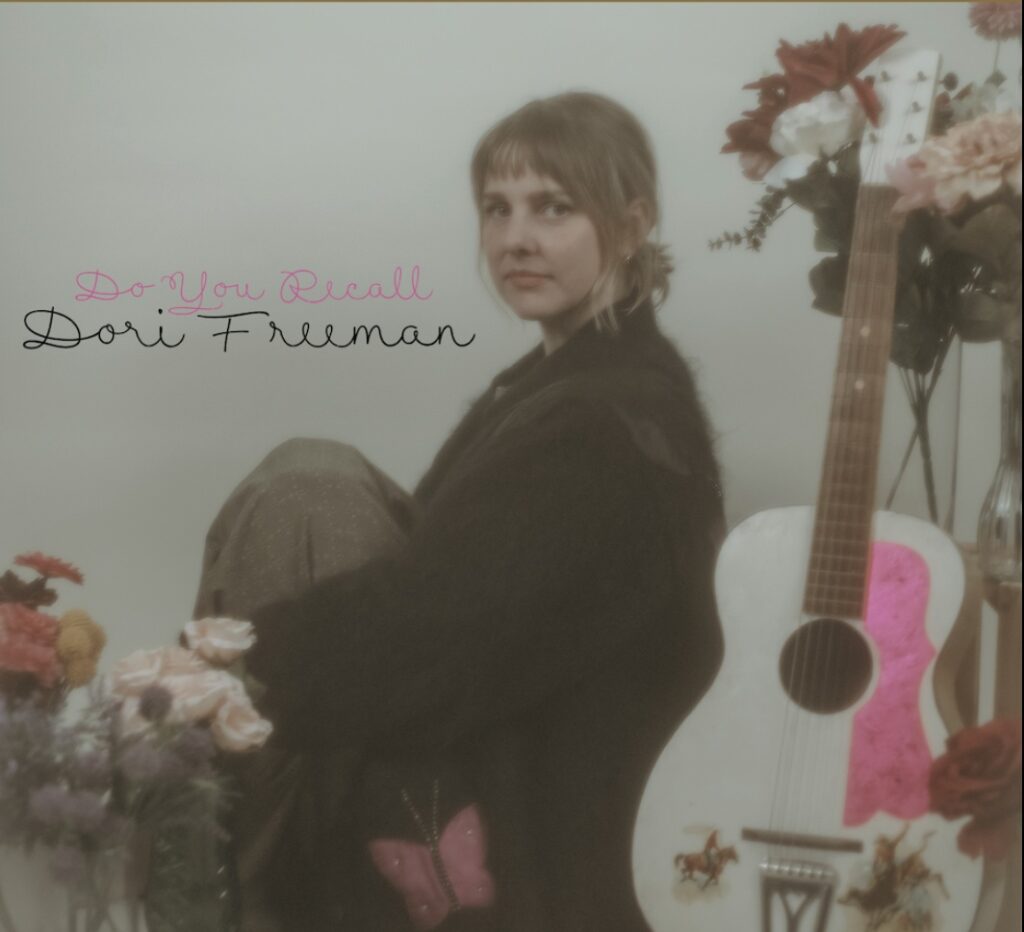
Dori Freeman, Do You Recall. If 1960s artists like Dusty Springfield, Lesley Gore, Gale Garnett, or Sandie Shaw had grown up in Appalachia, they might have sounded a bit like Dori Freeman. Her records have their roots in acoustic country music from that region but even on her early releases, Freeman evidenced a penchant for pop-rock and sixties “girl group” sounds. This latest record – which follows the self-released Porchlight, an eponymous 2016 album, Letters Never Read, Every Single Star, and Ten Thousand Roses – finds her moving further in that direction with satisfying results.
Produced like its most recent predecessor by her husband, drummer Nickolas Falk, the album comes loaded with great vocalizing and addictive hooks. Freeman is still singing about love, parenting, and life in Appalachia but now leans even more toward rock, with her acoustic guitar accompanied not only by electric guitars and bass but also by synths and Mellotron. Highlights include “Good Enough,” which features harmony vocals and keyboard work by Teddy Thompson, the producer of three of her earlier CDs; “Laundromat,” which she co-wrote with her musician father; and the dreamy title cut.
Virtually everything on the album suggests that she remains one of the most notable Americana artists to emerge in recent years.
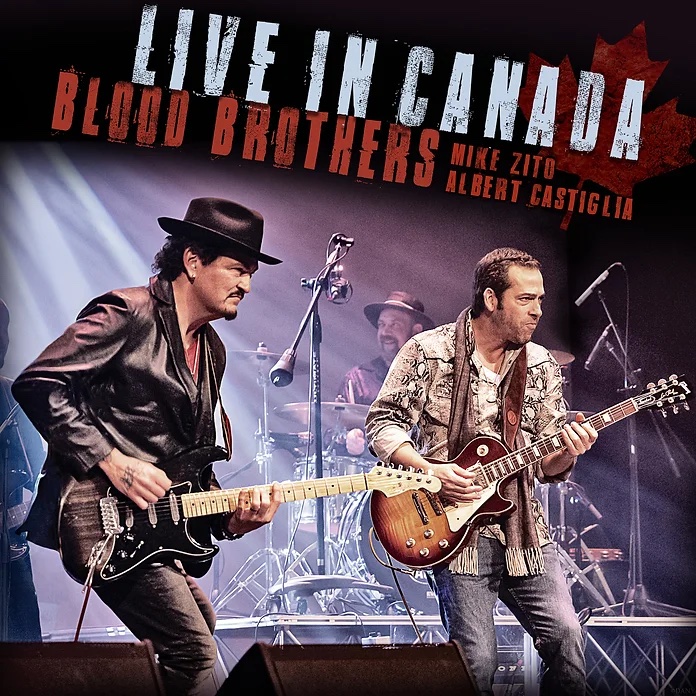
Mike Zito and Albert Castiglia, Blood Brothers: Live in Canada. The joint was jumpin’ at Blue Rock Studios, an event venue in British Columbia, on two nights last May. That’s when blues-rock guitar slingers Mike Zito and Albert Castiglia performed the tracks from their then-two-month-old Blood Brothers studio album for a live audience. Highlights of those shows appear on this CD, which benefits from the superb interplay between its principal players and consummate backup from a bass guitarist, two percussionists, and a pianist/organist.
In addition to performing all the numbers from the studio album – which includes originals and covers of such songs as John Hiatt’s “My Business” – the live set offers Zito’s “Gone to Texas,” a nearly 10-minute guitar showcase, as well as a rollicking cover of Neil Young’s “Rockin’ in the Free World.” Sparks fly throughout as Zito and Castiglia showcase lightning-fast lead guitar, sensational slide, and soulful vocals on a set that shifts effortlessly between Allman Brothers–style Southern rockers and torch ballads.
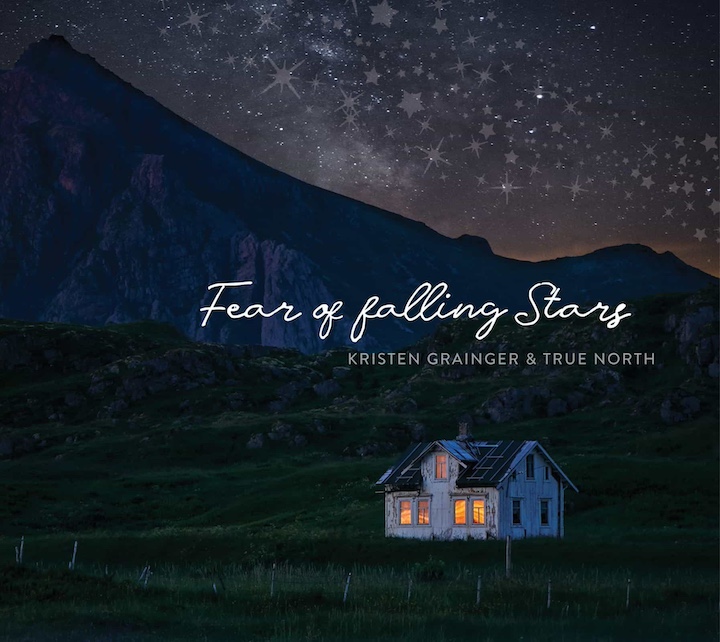
Kristen Grainger & True North, Fear of Falling Stars. This follow-up to 2020’s Ghost Tattoo doesn’t disappoint. Now as then, the Oregon-based group consists of singer/songwriter Kristen Grainger, her husband Dan Wetzel (guitar, banjo, mandola, resonator guitar, vocals), Martin Stevens (mandolin, fiddle, harmony vocals), and Josh Adkins (upright bass, harmony vocals). Now as then, they blend folk, country, and bluegrass and benefit from memorable compositions, Grainger’s emotive vocal work, and strong original material.
The album title comes from the melancholy lead-off track, which features three-part harmonies and appears to chronicle a failing relationship. There are other sad vignettes here, too, such as the uptempo “Across the Mountains,” about a woman leaving home after finding a goodbye note from her lover, and “Go-Nowhere Town,” about someone who is dealing with assorted woes, including divorce, lawyer fees, and two bad knees. There are happy songs as well, though, such as Wetzel’s “It’s the Little Things,” which counts the joys of a long-term marriage.
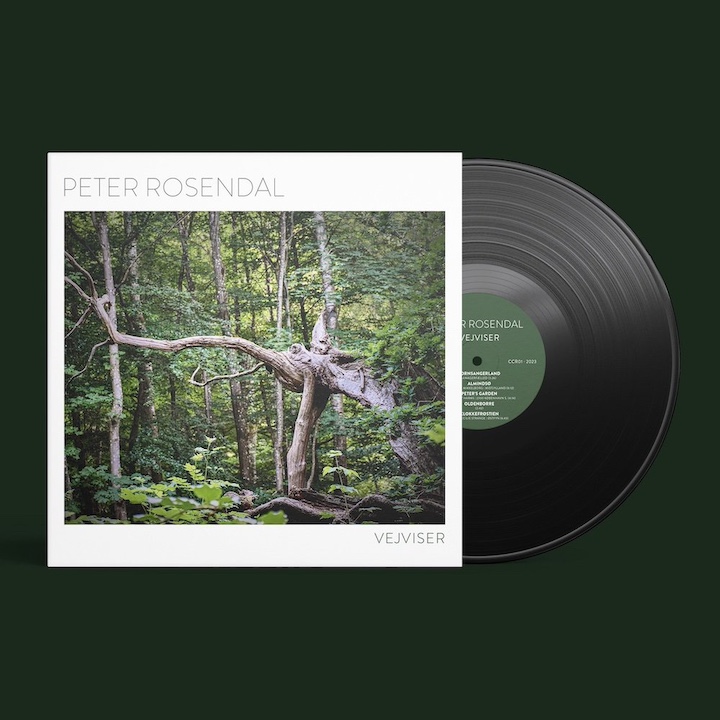
Peter Rosendal, Vejviser. Danish jazz pianist Peter Rosendal recorded nature sounds during early morning walks that blend here with his keyboard work and accompanists who include trumpeter Palle Mikkelborg, saxophonist Cecilie Strange, bassist Craig Earle, and vocalist Nancy Harms. The result is music that’s as calming as anything from George Winston, but more richly textured thanks to the instrumental backup and the integration of the sounds of birds, frogs, and insects. Close your eyes and this gentle, atmospheric music will transport you to a forest in Denmark.
Jeff Burger’s website, byjeffburger.com, contains five decades’ worth of music reviews, interviews, and commentary. His books include Dylan on Dylan: Interviews and Encounters, Lennon on Lennon: Conversations with John Lennon, Leonard Cohen on Leonard Cohen: Interviews and Encounters, and Springsteen on Springsteen: Interviews, Speeches, and Encounters.


